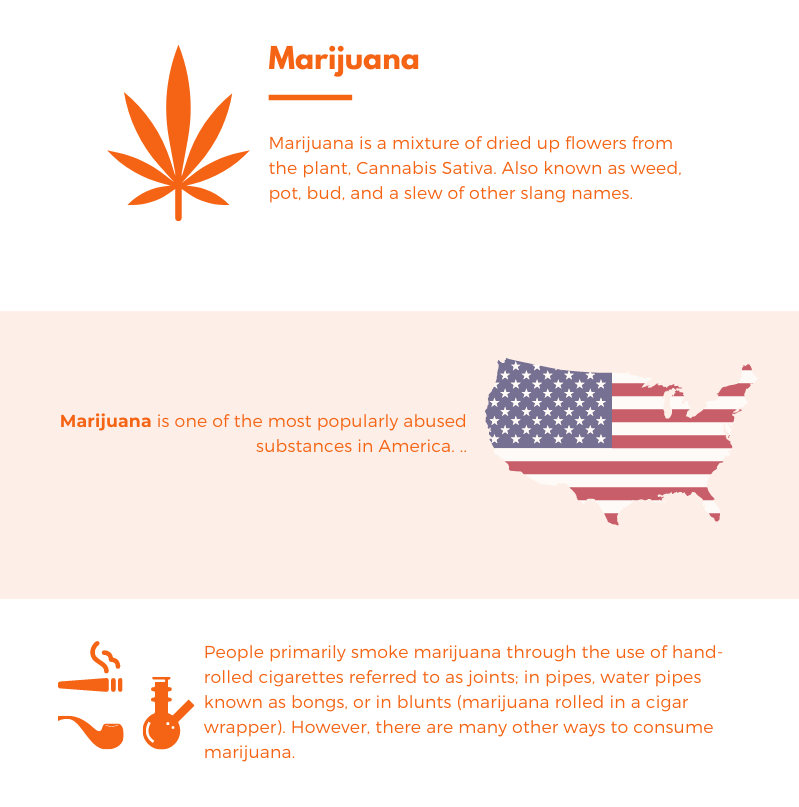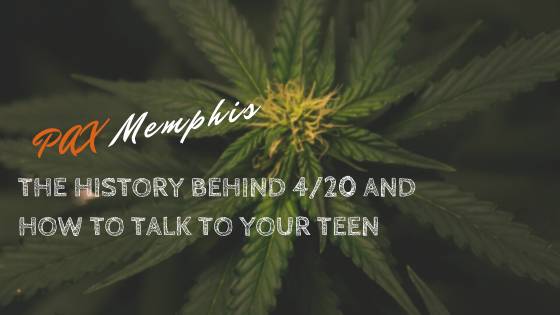April 20th, or 4/20, is widely known as the national marijuana “holiday”. As we are approaching this day, kids and teens may be hearing the words pot, marijuana, or weed more often. As a result, now is a good time for parents to learn about the history of 4/20, the dangers of adolescent marijuana use, and how to talk to your teen about weed. While many parents may have already educated their children on the dangers of smoking marijuana, now is the perfect time to open that conversation back up.
Additionally, learning about the history of 4/20 may be useful for parents, as it allows them to be fully knowledgable on the subject before they talk to their children. While there are many different theories about why April 20th is deemed the national cannabis holiday, most of the popular beliefs are false. In the following text, you will learn about the history of 4/20 and receive helpful tips on how to talk to your teens about abstaining from participating in related festivities.
What is Marijuana?

Other forms of marijuana:
- Edibles
- Vaporizers
- Hash oil
- Wax
- Shatter
You may be wondering, “if marijuana is just a plant, how do people get high off of it?” The answer is simple; marijuana contains a psychoactive chemical called delta-9-tetrahydrocannabinol (THC) that causes intoxicating effects when consumed. In some states, marijuana is legal medicinally and even recreationally. While marijuana has valid medicinal benefits, there are also risks associated with those who use it recreationally – especially if they have not reached adulthood.
Why is April 20th Considered the Marijuana Holiday?
Most people, whether they use marijuana or not, recognize 4/20 as the national cannabis holiday. However, few people know the history behind 4/20, or even why that specific date was chosen. There are many theories about why 4/20 is the pot holiday, including the thought that it stems from “4-20” which is the code police officers use when talking about marijuana. While this may sound like a good explanation, it is not the true origin of the cannabis holiday.
In fact, the most credible story about how 4/20 came to be traced back to Marin County, California in 1971. Apparently, 5 high school students would meet at 4:20 pm by a statue of Louis Pasteur to smoke marijuana. Additionally, this group became known as the “Waldos” because they met by a wall and would use “4-20” as a codeword when talking to each other about marijuana.
Later on, one of the 5 students ended up working with Grateful Dead’s bassist Phil Lesh as a roadie. It is said that the band contributed to popularizing the term “4-20”. On December 28th, 1990, a group of “deadheads” (grateful dead fans) in Oakland handed out flyers inviting people to smoke “4-20” on April 20th at 4:20 pm. This flyer got into the hands of a former reporter for High Times Magazine, a popular marijuana-dedicated magazine. He then printed the flyer in the magazine in 1991 and continued to reference marijuana as “4-20”. Soon, this became the worldwide term for marijuana and created the “stoner holiday” on April 20th.
Talking to Your Teenager About 4/20
While many parents have had conversations with their children about the dangers of teenage drug abuse, including the use of marijuana, sometimes it is good to reopen that conversation. For example, with the “stoner holiday” coming up soon, teenagers are more likely to become curious about marijuana and feel peer pressure. Therefore, it’s a good time to reiterate the dangers and risks associated with adolescent marijuana consumption.
Starting the Conversation
When talking to your teenager about a sensitive topic such as smoking marijuana, you must remain calm and supportive. Teenagers do not like being lectured, accused, or told what to do. In order to keep your line of communication with them open and honest, you must talk to them in a way they will understand. When you start the conversation, you should ask them if their friends are talking about 4/20. Next, ask them if they have any questions about it or if they would like to talk about it. In the case of your teen not wanting to talk about it, remain calm but firm. Let them know that you think it is important to have the conversation. The whole point of the conversation should be to educate them on the risks associated with marijuana, staying clear from using any accusatory tones.
Be Authentic
Make sure that you do not try to fear-monger your child in hopes that they won’t use marijuana. Most teens know that marijuana overdoses do not result in death and that the substance is used medicinally in a growing number of states. If your child has any questions about the effects and risks of marijuana, make sure to be completely honest with them. If you do not know the answers to some of their questions, do some research online with them. However, when researching marijuana make sure to stay away from biased websites. Explain to your child that, as with other drugs, it should only be used with a valid prescription from a doctor because marijuana can be addictive.
Teach Your Child How to Resist Peer Pressure
While many of us grew up hearing “just say no”, it has become apparent that this tactic is not always enough. Oftentimes, kids smoke weed because their friends offered it to them and they are afraid of seeming “lame” or “uncool”. In order to prevent this, teach your child alternative ways of saying no.
Examples of alternatives to “no”:
- Saying you have some other important activity to do
- Offering friends something else to do instead of smoking weed
- For older teens, saying you have to drive later
While resisting peer pressure can be effective, the easiest way to avoid using marijuana is to associate with people who don’t use it. If your child’s friends have been talking about 4/20 and smoking marijuana, advise your child to just avoid them for the day. However, if your child’s friends smoke weed regularly, that would warrant a more serious conversation. Whatever the case may be, you should remain supportive and informative when talking to your child about drugs. When you do this, you create a bond of trust with your child that makes them feel safe when talking to you about serious subjects.
Medically Reviewed: September 25, 2019

All of the information on this page has been reviewed and verified by a certified addiction professional.










